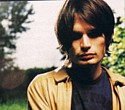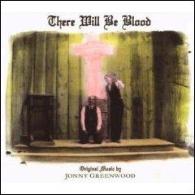
SOUNDTRACKS
Soundtracks are a lot more than movie music...
...or so I'm ready to argue as a 30 year devotee of this sorely under appreciated genre. So, in an effort to do my part, each week
I'll be making recommendations of soundtracks current and vintage, make a fuss over long awaited soundtrack scores finally getting
a well deserved release, and in general, make some noise about this often overlooked category. Beyond my long experience as a
listener and as a pianist and songwriter, both of which I've put to use in writing a quarterly soundtrack column for the Chicago
Tribune, I can only offer my recommendations. You'll discern my taste soon enough and upfront I'd like to make it clear that I'll
focus most heavily on SCORE soundtracks. In the end, all criticism is subjective but if I can point a listener toward a little heard
soundtrack or strongly advise you to either ORDER IMMEDIATELY or SKIP ALTOGETHER, all the better.
...or so I'm ready to argue as a 30 year devotee of this sorely under appreciated genre. So, in an effort to do my part, each week
I'll be making recommendations of soundtracks current and vintage, make a fuss over long awaited soundtrack scores finally getting
a well deserved release, and in general, make some noise about this often overlooked category. Beyond my long experience as a
listener and as a pianist and songwriter, both of which I've put to use in writing a quarterly soundtrack column for the Chicago
Tribune, I can only offer my recommendations. You'll discern my taste soon enough and upfront I'd like to make it clear that I'll
focus most heavily on SCORE soundtracks. In the end, all criticism is subjective but if I can point a listener toward a little heard
soundtrack or strongly advise you to either ORDER IMMEDIATELY or SKIP ALTOGETHER, all the better.
The Oscar nominations are out and though I'm REALLY irritated that Jonny Greenwood's
amazing score for There Will Be Blood didn't make the cut (because it wasn't totally written for
the film - insert RASPBERRY HERE) and I also think Alexandre Desplat got dissed. Both his
scores for The Golden Compass and Lust, Caution were certainly worthy of consideration.
Greenwood's score for There Will Be Blood would fit easily into the concert hall during an
orchestral program devoted to modern classical music - no surprise, given his current status
as composer in residence for the BBC, an assignment that certainly calls for advanced
composition gifts. From the first track of the score, the forlorn and foreboding "Open
Spaces," it's clear that Greenwood's music is going to cut a sharp path through the typical
Hollywood movie score. Relying heavily on strings and eschewing the percussion that has
long been favored by directors for their epic-sized productions, Greenwood's music is
beautiful and unbearably tense at once. "Future Markets," with its propulsive, pizzicato
strings racing up and down the scale is insistent and creepy while "Oil" and "Smear" are
restrained with the strings reduced to quartet size. Greenwood also creates a sense of
finality and ambivalence with the quiet, piano-based "Prospectors Arrive" track.
"Henry Plainview," the most dissonant of the string pieces and the selection director Paul T.
Anderson uses at the outset of his brilliant movie and "Proven Lands," another percussive
string piece, were composed by Greenwood for a piece commissioned by the BBC called
"Popcorn Superhet Receiver." Andersen, upon hearing the piece, immediately knew he'd
found the composer for his strangely hypnotic film. Greenwood's music, flinty yet lush, has
the same effect on the listener. But because of the inclusion of these two pieces in the
finished film score (accounting for approximately 35% of the music), Greenwood's masterful
work was barred from Oscar contention. This is something, no doubt, that soundtrack
enthusiasts will cry "foul" about for years to come - myself included.
Though it's certainly not for all tastes (none of those sugary Desplat melodies here), There
Will Be Blood is nonetheless the most thrilling addition to the movie music canon since
Nathan Johnson's offbeat score for Brick.
+++++++++++++++++++++++++++++++++++++++++++++++++++++++++++++++++
Don't forget to check out previous soundtrack recommendations by visiting the ARCHIVES
Next Recommendation: TBA
amazing score for There Will Be Blood didn't make the cut (because it wasn't totally written for
the film - insert RASPBERRY HERE) and I also think Alexandre Desplat got dissed. Both his
scores for The Golden Compass and Lust, Caution were certainly worthy of consideration.
Greenwood's score for There Will Be Blood would fit easily into the concert hall during an
orchestral program devoted to modern classical music - no surprise, given his current status
as composer in residence for the BBC, an assignment that certainly calls for advanced
composition gifts. From the first track of the score, the forlorn and foreboding "Open
Spaces," it's clear that Greenwood's music is going to cut a sharp path through the typical
Hollywood movie score. Relying heavily on strings and eschewing the percussion that has
long been favored by directors for their epic-sized productions, Greenwood's music is
beautiful and unbearably tense at once. "Future Markets," with its propulsive, pizzicato
strings racing up and down the scale is insistent and creepy while "Oil" and "Smear" are
restrained with the strings reduced to quartet size. Greenwood also creates a sense of
finality and ambivalence with the quiet, piano-based "Prospectors Arrive" track.
"Henry Plainview," the most dissonant of the string pieces and the selection director Paul T.
Anderson uses at the outset of his brilliant movie and "Proven Lands," another percussive
string piece, were composed by Greenwood for a piece commissioned by the BBC called
"Popcorn Superhet Receiver." Andersen, upon hearing the piece, immediately knew he'd
found the composer for his strangely hypnotic film. Greenwood's music, flinty yet lush, has
the same effect on the listener. But because of the inclusion of these two pieces in the
finished film score (accounting for approximately 35% of the music), Greenwood's masterful
work was barred from Oscar contention. This is something, no doubt, that soundtrack
enthusiasts will cry "foul" about for years to come - myself included.
Though it's certainly not for all tastes (none of those sugary Desplat melodies here), There
Will Be Blood is nonetheless the most thrilling addition to the movie music canon since
Nathan Johnson's offbeat score for Brick.
+++++++++++++++++++++++++++++++++++++++++++++++++++++++++++++++++
Don't forget to check out previous soundtrack recommendations by visiting the ARCHIVES
Next Recommendation: TBA
| Radiohead's Jonny Greenwood composes 2007's best movie score - Oscar rules be damned! |


